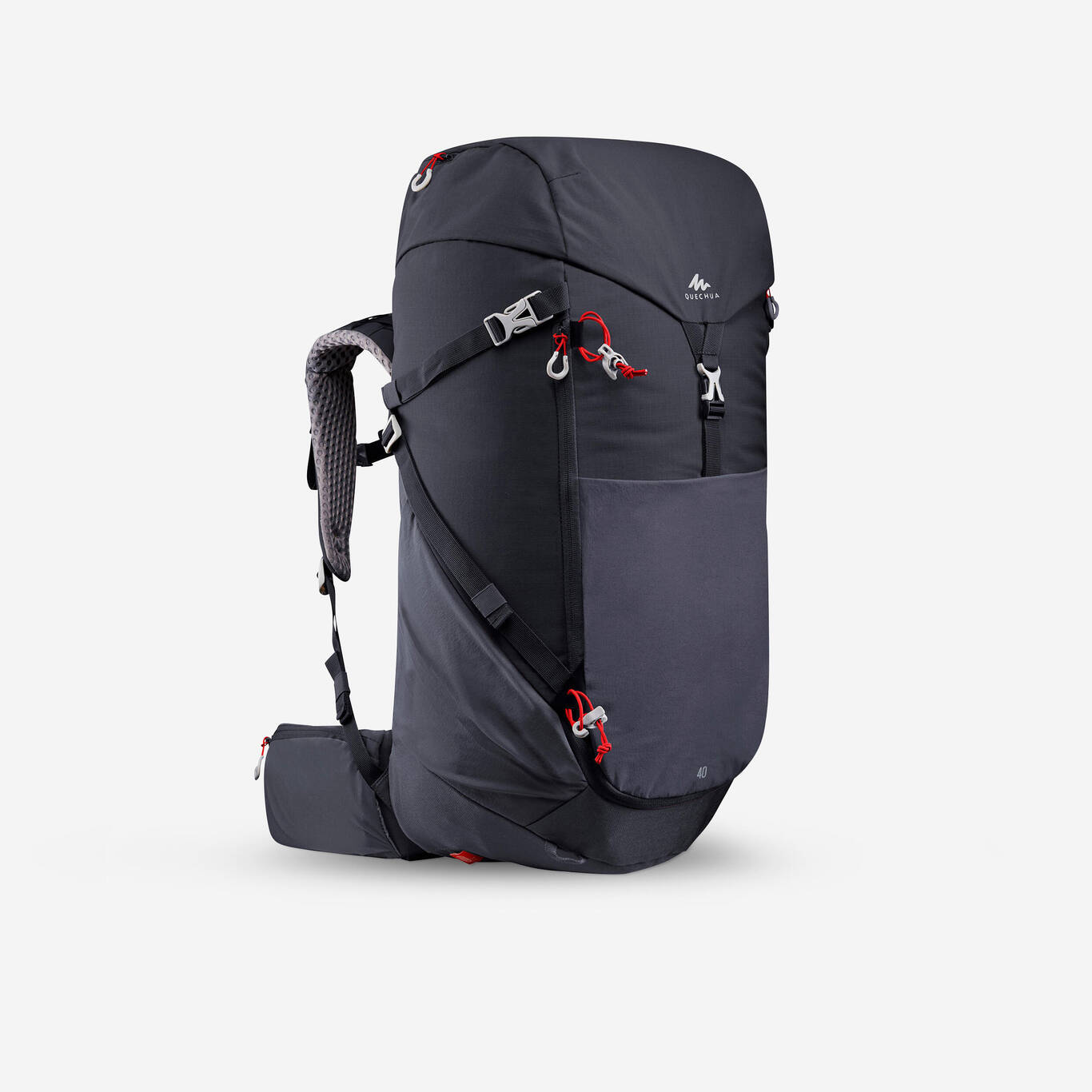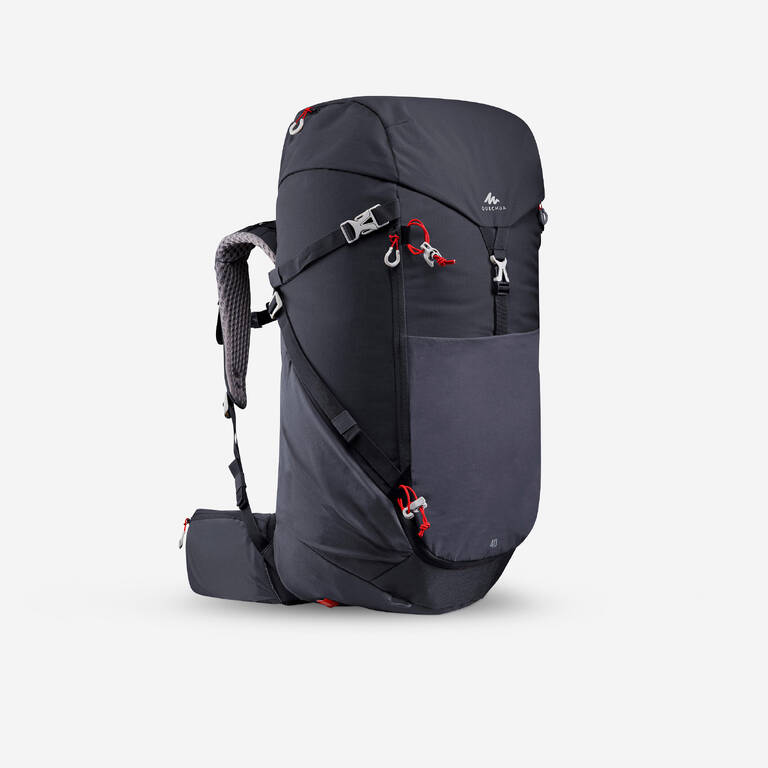10-year guarantee
We consider resistance to rubbing as very important.
The heavy clothing R&D department, a Quechua partner for the research and validation of its components and assemblies, performs tests (on components, seams and the finished product) simulating the ageing of backpacks.
Their results allow us to guarantee the bags tested for 10 years from the purchase date shown on the receipt.
DON'T THROW IT, FIX IT!
Our products will join you on your mountain walks.
As you progress, they age, and some parts can get worn or break.
To make repairs easier, in the "Bag accessories / hiking trekking", we sell tightening buckles and chest clips that are compatible with your bag. Don't throw away, repair !
WHAT DIFFERENCES ARE THERE WITH THE OLD MH500 BAG?
The back of this new bag has been fully reworked for greater comfort: a tight net with frame gives you more space between your back and the bag to reduce the damp back effect. This net used for the back, called mesh, is also softer than previously. What's more, this new model comes in 2 sizes for small and large sizes.
The 2 hip pockets are more spacious and stretchy and access to flask on the sides is easier.
Which size should I choose?
During several field test sessions with hikers of different sizes, we noticed that between 20 and 40 litres, the difference in comfort was mainly down to the back height of the bag. We therefore offer all our models in 2 sizes to meet these requirements. If you are taller than 170 cm, go for size L. If you are shorter than 170 cm, you will be better off with a size S.
Hydration
This bag can hold 1 litre, 2 litre or 3 litre pockets. However, although the pocket is voluminous, it will take up place that could be used for storing other belongings.
The side pockets are designed for flasks of maximum 1 litre.
WHY ARE OUR RAIN COVERS ORANGE?
This is a deliberate choice as we believe it's important to stay visible in the mountains, even in fog, in case of any problem. This orange colour has the advantage of being visible from a helicopter.
It's also a visible colour on the road if you use your bag when cycling.
HAND LUGGAGE
When you are travelling by plane, the authorised hand luggage size is 55x35x25cm3 maximum (warning, this can vary depending on the airline).
This bag can be used as hand luggage, so long as you don't load the top too much.
HOW TO PACK MY BACKPACK?
AT THE BOTTOM of the bag, pack your sleeping material, and heavy material nearer the back. Slide your water pocket into the compartment.
AT THE TOP of the bag, store your waterproof jacket and fleece within arm’s reach.
In the pockets, you can put your sun cream, maps, cap and sunglasses. Cereal bars or your mobile phone can be stored in the belt pockets for quick access.
The straps under the bag can also be used to attach a compact tent.
How do I adjust my backpack?
1 - Loosen all the straps: shoulder straps, belt, load-adjuster straps (these are the small straps above the shoulder straps)
2 - Put on the bag.
3 - Close the bag's belt, positioning it at the hips then tighten it until it feels firmly in place
4 - Tighten the bag’s shoulder straps
5 - Tighten the chest strap (not too tight to affect breathing)
6 - Adjust the load-adjuster straps (the bag will cling closely to the shoulders)
HOW TO CARE FOR AND WASH A RUCKSACK?
We recommend hand-washing your rucksack. Use soapy, lukewarm water, possibly with a brush, focusing on the areas in contact with the body (shoulder straps, back, waist belt), where you have perspired.
This is the best way for the fabric properties to be maintained, in particular the waterproofness.
Then rinse well with lukewarm water, dry in a dry place away from direct sunlight (no radiator). Store in a dry place.
Product design: our expertise
Our Quechua global design centre is based in Passy, at the foot of Mont-Blanc in Haute Savoie. This location makes it a real meeting place for our teams (designers, product managers, engineers, etc) and outdoor sports enthusiasts. A great asset for designing your mountain walking products and providing you with all our expertise.






























